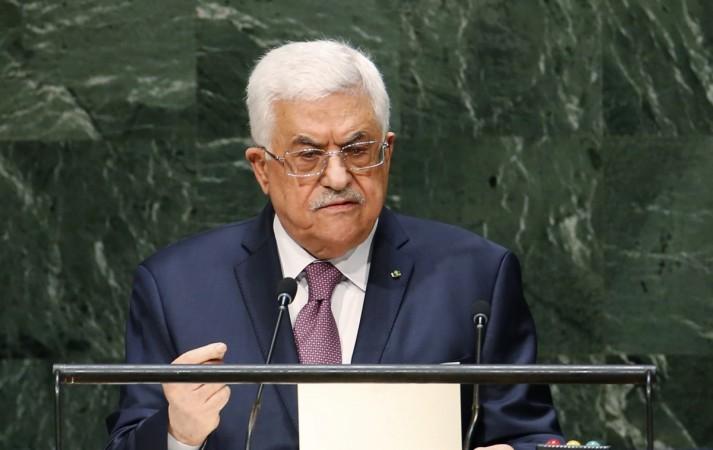
The United States has described Palestinian President Mohmoud Abbas' speech at the the 69th United Nations General Assembly as "provocative" and "counterproductive" towards reaching peace with Israel.
The US Department of State spokesperson Jen Psaki said in a statement on Friday that Abbas' speech, in which he alleged Israel of conducting a "war of genocide" in Gaza, was "offensive".
This comes close on the heels of weeks of conflict in the area where Israel unleashed a series of aerial attacks on Gaza early in July and later launched a ground invasion into the Palestinian territory. Over 2,130 Palestinians lost their lives in the nearly month-long war.
"Abbas' speech today included offensive characterisations that were deeply disappointing and which we reject," Psaki said adding that his remarks "undermine efforts to create a positive atmosphere and restore trust between the parties."
In his speech on Friday, Abbas said that there cannot be any peace talks until a "firm timetable" is in place to end the Israeli presence in Gaza and the West Bank.
"It's high time for this settlement occupation to end now," Abbas told the 193-member assembly, which in 2012 overwhelmingly voted to grant the Palestinians de facto statehood by upgrading their UN status from "entity" to "non-member state."
"There is no meaning or value in negotiations for which the agreed objective is not ending the Israeli occupation and achieving the independence of the State of Palestine with east Jerusalem as its capital on the entire Palestinian territory occupied in the 1967 war," he said.
Abbas also added that Palestinians and Gazans will never forget or forgive the atrocities heaped by the Israelis and they "will not allow war criminals to escape punishment".
Arab leaders have emphasised that a resolution to the conflict lies in a two-state solution adhering to the 1967 borders with East Jerusalem as the capital of the State of Palestine.
Israel has not accepted the 1967 borders. On Tuesday, Israel and the Palestinians agreed to resume talks next month to bring about a lasting ceasefire in Gaza.







!['Lip lock, pressure, pyaar': Vidya Balan- Pratik Gandhi shine in non-judgmental infidelity romcom Do Aur Do Pyaar [ Review]](https://data1.ibtimes.co.in/en/full/797104/lip-lock-pressure-pyaar-vidya-balan-pratik-gandhi-shine-non-judgmental-infidelity-romcom.jpg?w=220&h=138)








